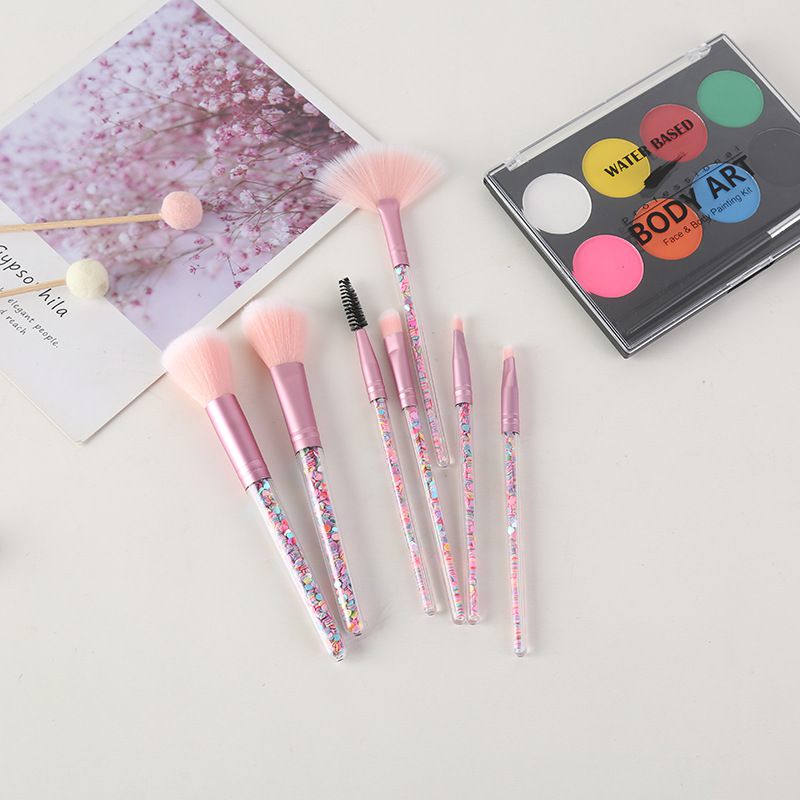Industry news
Estée Lauder Acquires Sustainable Brush Startup: Focus on Mushroom-Based Bristle Innovation
- 660 Views
- 2025-10-28 01:31:23
Estée Lauder’s Acquisition of Sustainable Brush Startup: Spotlight on Mushroom-Based Bristle Innovation
In a strategic move to bolster its sustainable beauty portfolio, Estée Lauder Companies has announced the acquisition of EcoBristle Labs, a pioneering startup specializing in mushroom-based bristle technology for cosmetic brushes. The deal, details of which remain undisclosed, marks Estée Lauder’s latest push into eco-conscious innovation, aligning with the growing consumer demand for planet-friendly beauty tools.
The acquisition comes at a pivotal time for the beauty industry, where sustainability has transitioned from a niche trend to a core consumer expectation. According to industry analysts, the global sustainable beauty market is projected to grow at a CAGR of 12.3% through 2030, driven by heightened awareness of plastic waste and carbon footprints. Traditional cosmetic brushes, often made with nylon or polyester bristles derived from fossil fuels, pose long-term environmental risks—these materials can take centuries to decompose and contribute to microplastic pollution. EcoBristle Labs’ breakthrough lies in its use of mycelium, the root-like structure of fungi, to create biodegradable yet high-performance bristles.

Mycelium, a fast-growing, renewable resource, offers a compelling alternative to synthetic fibers. Grown in controlled bioreactors using agricultural byproducts (such as oat hulls or sawdust), the material requires minimal water and energy compared to petroleum-based plastics. Once harvested, the mycelium is processed into fine filaments that mimic the softness, elasticity, and durability of traditional bristles. Early testing shows EcoBristle’s mushroom-based fibers degrade naturally in 6–12 months in soil, while retaining key performance metrics: they hold powder and liquid products effectively, glide smoothly on skin, and resist shedding—addressing a common pain point with plant-based alternatives like bamboo or coconut fibers.
EcoBristle Labs, founded in 2019, had already gained traction with indie beauty brands for its “zero-waste” brush lines, which paired mushroom bristles with recycled aluminum ferrules and bamboo handles. Its proprietary mycelium cultivation technique, which optimizes bristle thickness and flexibility, caught the attention of Estée Lauder’s R&D team. “EcoBristle’s technology solves a critical gap: creating sustainable tools that don’t compromise on luxury or functionality,” said a Lauder spokesperson. “This acquisition accelerates our ability to scale innovation across our brands.”
For Estée Lauder, the move is more than a product upgrade—it’s a strategic bet on the future of beauty. By integrating EcoBristle’s technology, the conglomerate aims to launch mushroom-bristle brushes under its prestige labels, including MAC and Clinique, by late 2024. Beyond brushes, plans are underway to explore mycelium applications in other tools, such as makeup sponges and exfoliating pads. The startup’s team of materials scientists will join Estée Lauder’s sustainability division, focusing on scaling production while maintaining the material’s eco-integrity—key challenges include stabilizing mycelium growth for mass manufacturing and keeping costs competitive with synthetic alternatives.
Industry experts view the acquisition as a catalyst for broader change. “Estée Lauder’s backing validates mushroom-based materials as a viable, scalable alternative to traditional bristles,” notes Clara Voss, a sustainable beauty analyst. “Smaller brands have paved the way, but a巨头 like Lauder can normalize this innovation, pushing competitors to follow suit and reducing the industry’s reliance on fossil fuel-derived tools.”
As consumers increasingly prioritize brands with tangible environmental commitments, Estée Lauder’s pivot to mushroom bristles signals a shift: sustainability is no longer about marketing—it’s about reimagining product fundamentals. With this acquisition, the beauty giant isn’t just buying a startup; it’s investing in a future where luxury and planet health coexist.











